
An improperly functioning thyroid may very well be the number one problem I see in the clinic. The obvious problem stems from people not having been taught how to feed this overworked gland. First view updating information on the thyroid test to include Reverse T3 (RT3) that is showing to be a contributor to weight gain and low function. Currently testing for RT3 has not become common place among labs. Learn about the test in an easy condensed format to better equip yourself to ensure you are getting a more thorough diagnosis or at least know why you are not getting accurate results. There will be two more correlating posts to adequately take care of the most abused gland in our body.
*Learn about the thyroid and adrenal gland interactions in my new book Reverse Gut Diseases Naturally. Also how to increase the functioning of these all important over achieving glands. Learn what happens when they are not properly supported.
About the Thyroid Gland
The endocrine system consists of nine glands which secrete dozens of hormones that are released into the bloodstream to regulate and support all the systems in the body. The thyroid gland is located below the larynx (voice box), with lobes lying on either side of the trachea. Even though the body is to be treated as a whole, the thyroid and adrenal glands and their hormones produced, greatly impact how we feel and cope when it comes to energy levels, cravings, stress, mood swings, water retention, weight gain and loss, patience, anger and anxiety. The endocrine system does work as a team although the thyroid, adrenals and pancreas actually work as a triad – always interrelating throughout the day.
TSH Test – How Accurate Is It?
The Thyroid Stimulating Hormone Test is a routine blood test to check how well your thyroid gland is functioning. Unfortunately, tests are not all conclusive. This is a prime example of an inaccurate test.
Implications surrounding thyroid health far surpass the normal doctor’s office thyroid test. The test itself has fallen under intense scrutiny among medical professionals and the general public as to why this “Gold Standard Test” is not reflecting the physical symptoms described by the patients.
Anyone approaching this subject may be surprised by the many thyroid related conditions and as many related causes. The levels of information become increasingly complicated as ones search delves further into investigating the nuances of testing and the lack thereof.
As a natural medicine practitioner, I have long sense been aware that lab tests do not tell the whole story. The traditional thyroid test performed at the doctors office is an example of a patient’s signs and symptoms not correlating to the test results. The thyroid gland plays a surmountable role throughout the body; every cell in the body has a thyroid hormone receptor. As it happens, the number one imbalance I see that most people are unaware of as being a concern or having an impact on their health – is hypothyroidism (underactive thyroid function). Especially since they were consistently told that their thyroid is working well. It may perhaps have something to do with living in a land locked area, around the great lakes, since fresh water does not contain iodine.
Test for Anti-thyroid Antibodies
Another condition on the rise is inflammation of the thyroid and hyperthyroidism.
Two specific tests (TPO and TgAb), will help determine an autoimmune problem. Seek these tests out if you suspect any conditions of Hashimoto’s disease, Thyroiditis, or any other condition related to thyroid gland inflammation.
It is duly noted by physicians – to never trust any test to be one hundred percent accurate. This scenario is not all that hard to accept if you yourself; or others whom you know well, realizing that they are unwell, and yet all of their tests come back negative. You probably wonder like many, how can this be so?
As with all health related problems, there is a reason for everything. A few light reasons why it would be fair to question your thyroid blood test results include the basis on which norms for establishing levels are not accurate to the masses. The time of entry of the venipuncture should be based over a much longer period of time; 12 hours later could produce a much different result.
The hormone level being measured is not of the actual cell, but the blood around the cell. For this reason T3 and T4 levels can only give an educated guess as to the hormone level in the cells. Poor circulation and decreased blood volume affect test results, as does hormone disruptors which may interfere with cell receptors. The hypothalamus and pituitary glands also play a key role.
Myxedematous (myxedema psychosis) is a relatively uncommon consequence of hypothyroidism, although on the rise; such as in Hashimoto’s, Thyroiditis or in patients who have had their thyroid surgically removed.
Symptoms of Poor Thyroid Function
Generally, a patient requests help and diagnosis with symptoms such as fatigue, weight gain, hair loss, cold hands and feet, heavy menses, hot flashes and brain fog or their memory has noticeably declined.
Upon results from blood testing for the thyroid, the patient is most often told they are fine. But they are not fine. The standard TSH (Thyroid Stimulating Hormone) test is actually a hormone produced by the pituitary gland. TSH governs the thyroid gland on the amount of hormone needed by the body. Upon examining test results, high TSH levels indicate low amounts of thyroid hormone while low TSH levels, indicate too much hormone. The problem is these values fall under “typical”, a reference which is far from accurate.
What to Request at the Doctors Office
Free T4 (FT4), an inactive form, must be converted to Free T3, the active form, for the body to maintain energy levels, while additionally required to either enhance or sustain metabolism. The thyroid hormone Free T4 is viewed upon as a storage vessel, although in order for the body to function properly, FT4 must be converted to Free T3 (FT3). When testing at the doctors office, request that both Free and Total levels of T4 and T3 are obtained and also that your doctor is analyzing the free levels. The reason for checking free levels of T4 is to determine the amount of Free T4 that is available for conversion to T3; otherwise, T4 is bound to proteins in the blood.
Reverse T3 (RT3)
Another aspect of thyroid testing to consider are the levels of Reverse T3 (RT3). This variety of hormone is the “inactive” form of T3 and has anti-thyroid effects. An excess of RT3 has an inhibiting effect on T4, thereby essentially blocking its absorption into the body’s cells. RT3 is made from the storage hormone T4 via the liver. The result renders thyroid function to be less than optimal. Physiological reasons by means of the adrenal glands, either producing too much cortisol or too little, and ferritin (iron) levels, induce the body to create excess RT3 hormone. High cortisol levels inhibit the conversion of T4 to T3. B12 may also play a role. All the physical anomalies related to stressed adrenals and to lower red blood cell count, are contributing factors that increase levels of RT3.
Thyroid Health Best Natural Remedies
Iodine – Best Supplements for Health
L-Tyrosine and Iodine – Main Energy Components
Copyright © 2016 – All Rights Reserved – Michelle Honda Ph.D.
Announcement
New Book Release: Reverse Heart Disease Naturally (Jan. 31, 2017), Reverse Inflammation Naturally (May 31, 2017), Reverse Thyroid Diseases Naturally (Fall 2017)
Reverse Heart Disease Naturally 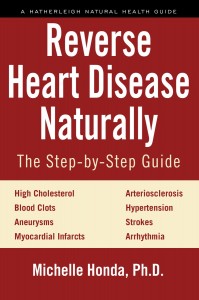
Reverse Gut Diseases Naturally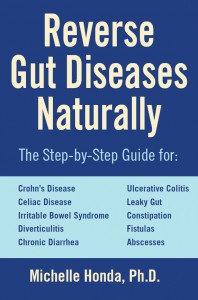
Disclaimer
While close attention was given to the accuracy of information in this article, the author accepts neither responsibility nor liability to any person with respect to injury, damage, loss or any circumstances involving alleged causes directly or indirectly related to the information in this article. The sole purpose is to educate and broaden ones awareness. This information is not meant to replace medical advice or services provided by a health care professional.







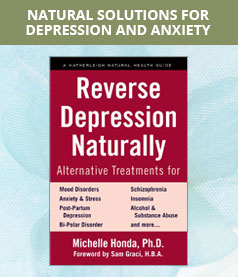

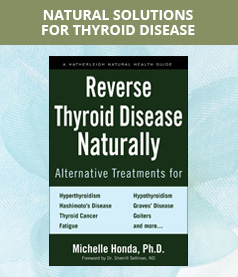


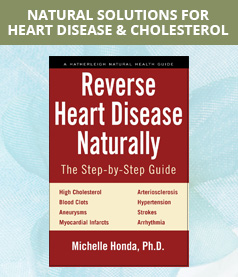
Follow Us!